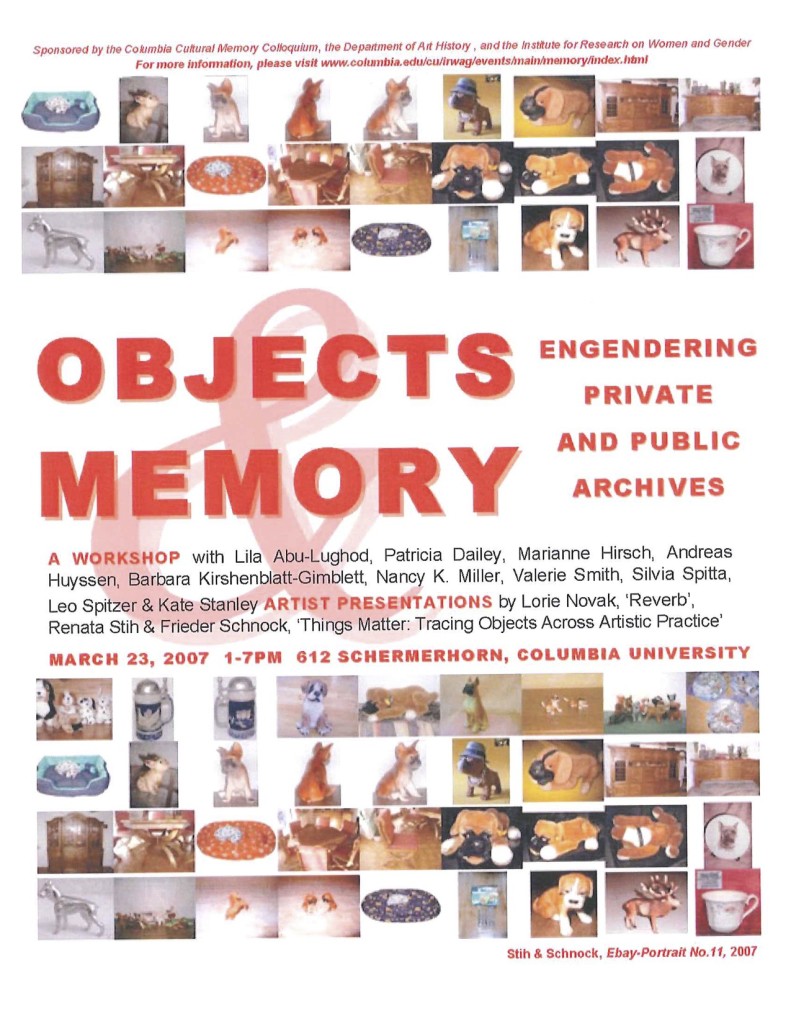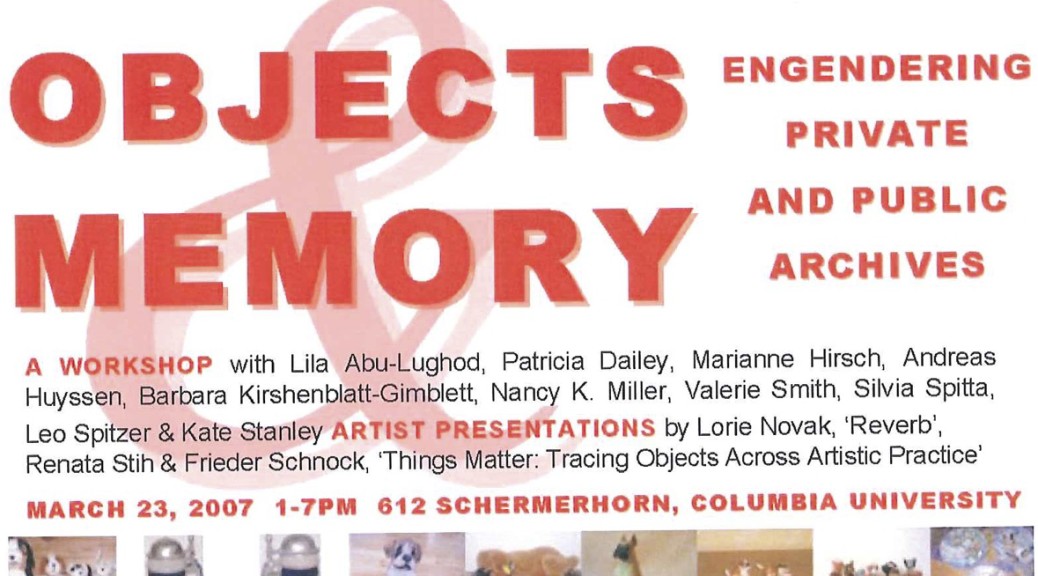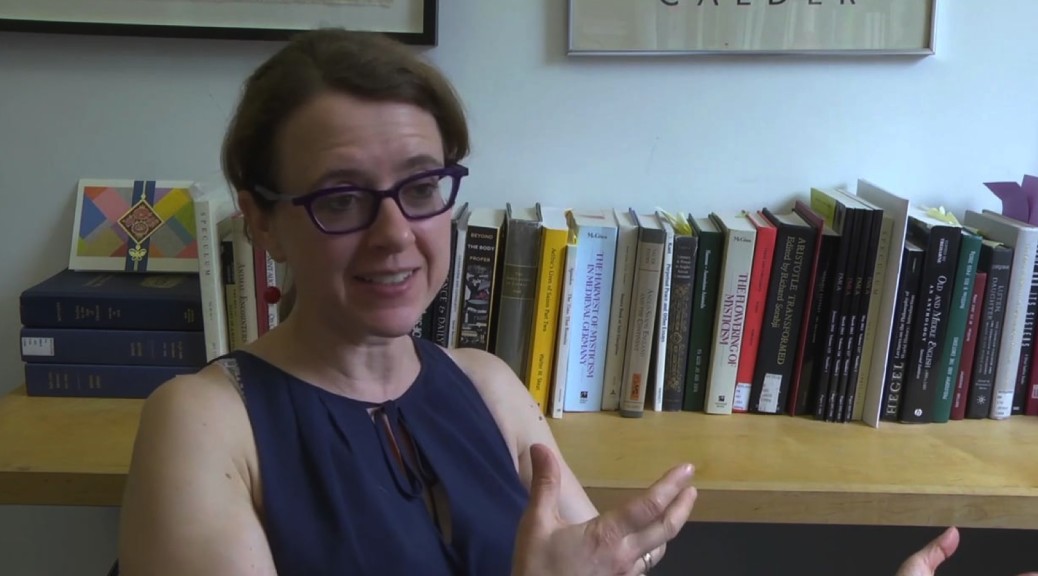
Category Archives: Patricia Dailey
“Organizing teach-ins on Title IX…”
PATRICIA DAILEY
Associate Professor of English and Comparative Literature
IRWGS Director, 2014
I asked [James] Valentini’s office and Sharon Marcus’s office—the dean’s office—if they’d be willing to provide funding for events related to Title IX, or any subset issue. Valentini’s office gave us two thousand, Sharon Marcus gave us, I think, a thousand. We put on what was called a teach-in, but it was an information session that we held in the fall, which was really successful. We had over a hundred people. It was in the Law School. Suzanne Goldberg—at first I didn’t want her to speak because I thought it would be too institutional. Then I invited her. She said, “If we don’t include Columbia as one of the factors, what kind of a comment does that say? That we’re in some ways against Columbia? We have to give Columbia a chance to be a participant.” I said, “God, you’re right, sorry. Please join us!” And she did, among other people.
I invited two people who were part of No Red Tape, who are also self-identified as survivors, and so they sat on the panel too. They said it was very helpful at least to even have somebody to speak to. It was a good panel, because we started off with bystander interventions, and not just talking about post, but pre-preparation, or what you can do. Bystander intervention, someone who had done training on that, a Title IX person, an attorney who knows Title IX very well, and also telling people the options. Like, here legally are the different things you can do in various registers, and know that if you do X, Y is excluded, or Y isn’t excluded and all those kinds of technical things that people sometimes have to reinvent the wheel to figure out.
We had a big fall event. It was really successful. I was working with No Red Tape, I was put on their board for a fund outside of Columbia with donors to help develop funding sources for people to have alternate means of funding, either bystander intervention or projects, or whatever it was. I did an independent study with Zoe Ridolfi-Starr, allowing her activism to be counted academically (so long as she wrote a paper), helping her that way, recognizing the work that she was putting in. Then we scheduled a workshop for the spring and did a screening of The Hunting Ground, and another thing through the Law School on sexual harassment in the military. We did a good number of events that were mostly well-attended, partnered with the Law School on two. Bernard Harcourt in the Law School teaches a lot on law related to sexual assault, so he had a whole class that he wanted to attend. That’s been our involvement.
“JFAB: it’s there to advocate for junior faculty…”
PATRICIA DAILEY
Associate Professor of English and Comparative Literature
IRWGS Director, 2014
Basically [the Junior Faculty Advisory Board, JFAB] is there to advocate for junior faculty directly to the administration, and create a sense of solidarity, or be a consulting board too—an advisory board for junior faculty and on behalf of junior faculty. I’m happy to say that its mission has changed partially due to the success of a lot of the initiatives. So we wanted a mentoring program, and it was implemented as of the fall. We wanted topping off of prestigious fellowships and grants, and we got that. It’s being implemented for the junior faculty, and even senior faculty, as of this fall [2015]. We wanted more research funds to be dedicated to junior faculty.
Housing and childcare are two banes of our existence. It’s funny, I was just on the phone yesterday with somebody who found out his wife is pregnant with twins, and they’re in a one-bedroom apartment. How does he get a larger apartment? People starting families, not having any place to do—some of them not having offices—this is a person also who doesn’t even have his own office: How are junior faculty expected to meet our expectations of them? These are things that have little to do with gender, but just have everything to do with seniority and the structure here. Sometimes they have to do with gender in other ways, especially given childcare and the burdens of childcare, or family care for elderly parents, and how often that falls on women, statistically. It’s, sadly, still a norm.
Junior faculty take on an incredible burden in terms of service. Their warm bodies are used in ways that often some senior faculty members’ aren’t, because they have the privilege of being able to opt out at times. We had already had this discussion as a committee before. Suddenly [one administrator] says, “Oh, well, maybe we should change Manhattanville to have more junior faculty housing then.” I said, “Yes. While you’re at it, get the infant care center at the ground floor.” I’m trying to get them [people in the provost’s office] to think in these broader terms that will actually—and, like the school district. Do you realize that the junior faculty might not want to move up there because of the school district, District Five, which is not the best of options for public schools? Now you’re putting the burden on them if they don’t want the public schools, then, to go into private schools. The private school tuition benefit that they provide hasn’t been updated since the ‘80s. It’s just a real financial disaster.


